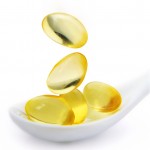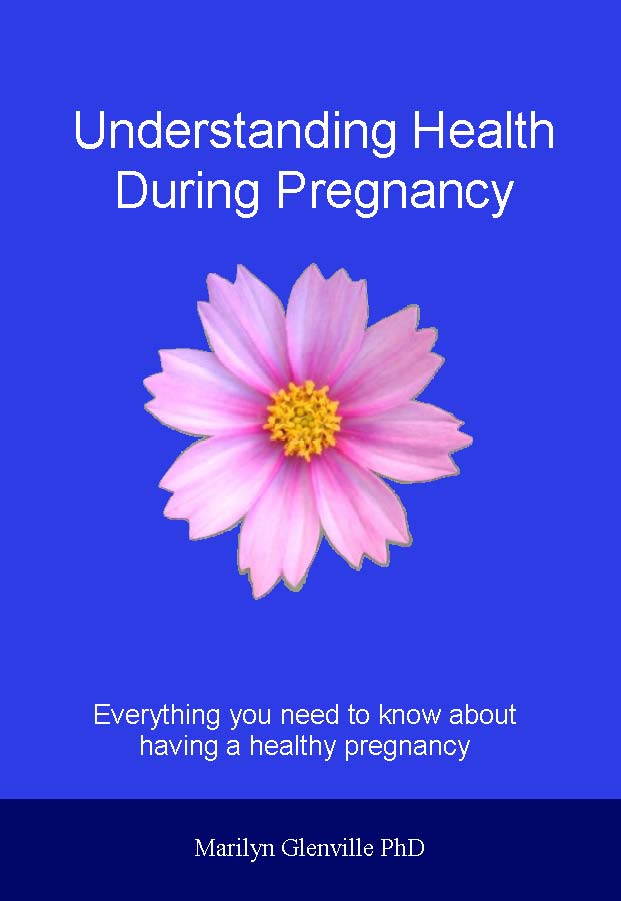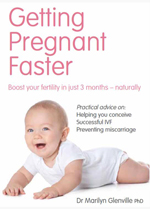Pregnancy Advice

Like the menopause, pregnancy is not an illness but a natural event. I have included it in these sections because there can be complications and uncomfortable symptoms that can be distressing and even debilitating for some women. It’s also very important that you know how to reach and maintain a state of optimum health in order to prepare for a comfortable pregnancy and the delivery of a healthy baby. At more than any other time, you will be considering what you eat when you are pregnant. The responsibility of feeding (indeed, growing!) another human being should never be taken lightly. You need to know what foods are beneficial for your baby’s health and development, but you’ll also need to know what should be avoided and whether you should be taking supplements.
Many women experiment with natural approaches to health for the first time when they are pregnant, largely because so many drugs are inappropriate for use during pregnancy, but also because it simply feels right to let nature take its course. During the early weeks and months of pregnancy a baby’s cells divide and multiply rapidly and its organs are formed. For the remainder of the pregnancy, everything that will eventually make up your baby is formed. I cannot stress too much the importance of good nutrition during pregnancy.
For many years, we have believed that babies in the womb are insulated from the external environment, and that they are protected from anything that could cause them harm. It makes sense that nature would protect the next generation. However, we now know that this is only true to a point. If there is little food, for example, your baby is more likely to benefit from it than you are. That’s one of nature’s protective mechanisms. However, it appears that what an expectant mother eats – or doesn’t eat – can have a profound effect on a baby’s health in the womb, after he is born and even when he becomes an adult.
Your diet during pregnancy
It is important to eat as well as you can from the moment you discover that you are pregnant. However, it is even more beneficial to prepare for pregnancy by changing your eating and drinking patterns up to four months before conception. If you are considering having a baby, then take a four-month ‘preconception’ break, and follow the recommendations from the Fertility Section. You may be alarmed to find this information in the infertility section of the book, but let me reassure you that the recommendations are the same, whether you are trying to conceive, or simply getting yourself into peak condition before having a baby.
If you are already pregnant, start straightaway with the nutrition recommendations on The Foundation of Health page.
Problems you might experience during pregnancy
Although pregnancy is not an illness, there are a number of different problems that may cause concern or discomfort during this time. These can include morning sickness, constipation, heartburn, pre-eclampsia, concerns about your weight, premature labour and infections.
What are your choices?

Because of the difficulties encountered in the past with drugs such as thalidomide, which was given for morning sickness, doctors are usually extremely careful about prescribing medication during pregnancy. Many of the problems, such as morning sickness, are left untreated unless they become extreme, at which point anti-nausea medication may be used or hospitalisation advised
Antibiotics may be needed when an infection is present, particularly something like bacterial vaginosis, which can bring on a premature labour.
Antacids may be recommended for heartburn, as they are safe in pregnancy; however, the natural alternatives should be tried first because antacids can reduce the absorption of iron.
Stimulant laxatives for constipation are not recommended during pregnancy because they can increase womb activity in some women. The general advice for constipation will always be to make dietary changes and ensure that you are getting plenty of fluids.
There’s a lot you can do
It has become increasingly clear from recent research that a number of problems experienced during pregnancy and even throughout your baby’s life can be prevented. If you do the best you can to have a healthy diet and lifestyle, and to remove environmental dangers, you will give your baby the best possible chance of being healthy both at birth and long into his future.
Taking the time to make changes before conception and carrying them through pregnancy may seem like a lot of effort. However, science is now showing us that this effort is well rewarded . In the first place you’ll find it easier to become pregnant, and you will be less likely to experience a miscarriage. Most importantly, however, you and your baby will be healthy throughout the pregnancy, and after the birth.
It has been recognised that the environment in your womb has an enormous impact on the future health of the baby, and even his intellectual development. A year or so of taking care of yourself will reap rewards both for you and any children you go on to have.
The natural approach to pregnancy problems
One of the keys to a healthy pregnancy is your diet. So many of the problems associated with pregnancy are directly caused by diet, or nutritional deficiencies. If you take steps to address these well before conception, you are much less likely to experience discomfort or worrying symptoms. Eat a good diet, and supplement with some extra nutrients to ensure that you and your baby have everything you need. There is evidence that vitamins can prevent one of the most dangerous conditions that can occur in a pregnancy – pre-eclampsia – which gives an idea of just how important diet can be. And it’s not just in the early days that your nutritional status will make a difference. You need to eat well and take appropriate supplements all the way through pregnancy.
Supplements

Your baby gets first call on all the nutrients it needs, so you need to make sure that you are feeding yourself well and taking in enough nutrients to keep yourself healthy. These nutrients will also help to give you energy, and to prepare you for the birth and looking after your baby when he is born.Apart from eating well, there are certain supplements that should be taken during pregnancy. I’m not suggesting megadosing anything – simply ensuring that you have adequate levels of everything that is now proven to be essential for your baby. Unfortunately much of the food we eat no longer contains adequate levels of vitamins, minerals and other nutrients, and unless you eat entirely organic, and a hugely varied diet, it unlikely that you will be getting enough.
Multivitamin and Mineral
A good quality multivitamin and mineral would form the foundation of your supplement programme to make sure that you are getting a ‘little bit of everything’. You then add in those nutrients in slightly higher amounts which are known to be valuable during pregnancy.
Folic acid
You are normally told to take this vitamin for the three (or four) months leading up to conception, then during the first 12 weeks of pregnancy. Your need for folic acid doubles when you are pregnant so it is a crucial vitamin to take supplementally. It not only helps to prevent spina bifida, but research has shown that women taking folic acid during pregnancy gave birth to babies who have a good birthweight, higher Apgar scores (the test given to a baby just after birth) and a lower incidence of foetal growth retardation. I recommend that you take folic acid throughout pregnancy.
B vitamins
Folic acid is a B vitamin, but I listed it first to draw attention to its importance. The other B vitamins are equally important during pregnancy and levels of B1, B2, B6 and B12 are often deficient at this time. Studies have shown that supplementing with these vitamins is associated with babies who are healthier in terms of birthweight and the circumference of his head.
The B vitamins are known as the ‘stress’ vitamins, so they can be very useful during pregnancy, when stress levels can be higher. These vitamins can also help with the mood swings and tearfulness that often accompany pregnancy.
Magnesium
Magnesium is a mineral that your body needs to form bone, protein and fatty acids. It relaxes your muscles and helps your blood to clot appropriately. This is a useful mineral if you suffer from leg cramps. Studies show that magnesium levels are lower in women who have had a premature labour.
Furthermore, because it has a good effect on muscles, it can help to prevent premature contractions by relaxing the muscles of the womb. Scientists have investigated the effect of giving magnesium during pregnancy and found that women taking magnesium supplements had less chance of having low birthweight and premature babies, and their babies had better Apgar score.Magnesium is known as ‘nature’s tranquilliser’, so it can be invaluable if you are suffering from tension and/or stress. It’s also a good basic treatment for insomnia. Take it as a separate supplement (apart from what is contained in your multivitamin and mineral tablet) for best effect. A total of 200mg per day is the optimum dosage. If you need help with sleeping, take it about an hour before going to bed.
Calcium
For many years it was believed that pregnant women have additional calcium requirements because the calcium needed for a baby’s growing bones would be ‘leached’ from his mother’s bones if there wasn’t enough available.
However, recent research has shown that a mother’s body changes to meet this requirement by making sure that calcium is more efficiently absorbed from the food you eat.
Obviously it is important that there is calcium available in your diet to meet your baby’s needs, but it is not necessary to have extra during pregnancy. A good multivitamin and mineral will contain calcium.
Iron
Years ago iron supplements were routinely offered during pregnancy, regardless of whether or not a woman was iron deficient. Thankfully, this practice has now stopped. Iron is a strange mineral. Until recently, scientists believed that we couldn’t really have too much. Our bodies need iron to make red blood cells and to transport oxygen around the body. Without iron, new cells cannot be produced and our organs would be starved of oxygen. Iron deficiency is characterised by fatigue because the body is, literally, being starved of oxygen.
However, too much iron is not a good thing. Any iron that is not used is not eliminated from the body, but stored as something called ‘ferritin’. The only time we actually lose iron from our bodies is during our periods, during childbirth, when we donate blood, or when we suffer blood loss through an accident. In other words, we have to lose blood to lose iron.
Iron supplements should, therefore, only be taken if you have a deficiency. Most women are routinely tested for iron deficiency during pregnancy.
Not all iron supplements are the same
If you are found to be deficient in iron, you will probably be given a supplement. Unfortunately, some iron supplements can be largely ineffective depending on the form in which they are given. Inorganic iron – such as ferrous sulphate and ferrous gluconate, which are the standard irons given medically – are very difficult to absorb and can cause problems in the digestive system, resulting in constipation or black stools (which shows that the iron is not being absorbed). Inorganic irons are much more easily absorbed and do not usually cause any bowel changes.
There are ways to help increase your iron intake (or uptake by your body) which do not involve using supplements. For example, drinking BLACK tea, which contains tannins, during a meal can block the uptake of iron (and other vital minerals). Leave a gap of at least 30 minutes between eating and drinking tea. If you are prescribed iron, it should be taken with a vitamin C supplement on an empty stomach, to ensure that it is properly absorbed.
Zinc
This mineral is very important for the health of your growing baby, and low levels have been linked to low birthweight, spina bifida and other abnormalities. Your zinc levels can go down by about 30 percent during pregnancy, so it is important that you have adequate supplies.
Omega 3 Fatty Acids
These essential fats have a profound effect on every system of the body, including the reproductive system and they are crucial for healthy hormone functioning. They are essential for healthy blood flow to the foetus and the DHA part of the fish oil is essential for the development of baby’s eye and brain and help improve cognitive function.
Many of the women I see in the clinic have been taking evening primrose oil supplements – an Omega 6 fatty acid – for years and have not been eating enough Omega 3 oils, or taking them in supplement form, to counterbalance this. Some women are also taking combinations such as Omega 3, 6, and 9 in supplement form because they have heard that we need a good balance of all the Omega fatty acids. This is true, but you have to take into account what your own levels may be in the first place. It is no good adding in more Omega 6 if you have already got enough or in fact too much in your body. (You can now have a blood test to tell you if you have the correct levels of Omega 3 to Omega 6 in your body see below). To check whether you have sufficient levels of Omega 3 please click Omega 3 Deficiency Test (at home finger prick blood)
Vitamin D
The vitamin is important because it helps your absorb calcium and when you are pregnant you are building another skeleton, your baby’s. A deficiency of vitamin D can cause softer bones in children which can then lead to rickets. The Government in the UK now recommends that all pregnant women take a supplement containing vitamin D daily and it would be helpful to take the check for vitamin D deficiency so you know exactly how much vitamin D to take.
There is also an increasing wealth of research linking low levels of this vitamin with miscarriage. It’s thought that Vitamin D plays a role in helping the body to maintain a pregnancy and overcoming problems with your immune system which may make it difficult to stay pregnant. So if you’ve had a miscarriage, it is recommended that you check your levels. To check whether you have sufficient levels of Vitamin D please click Vitamin D Deficiency Test (at home finger prick blood)
Furthermore, by adopting a healthier lifestyle you will be more likely to have a healthy and comfortable pregnancy which is discussed in detail in the rest of this ebook which you can read by clicking on Understanding Pregnancy ebook at The Natural Health Practice
Herbs

Red Raspberry (Rubus idaeus)
This is the herb most often used to prepare for labour because it helps to strengthen and tone the womb. It is rich in vitamins and minerals and also helps to increase the flow of milk. It is usually recommended from the 34th week of pregnancy and can be taken as a tea.
Tests

Mineral Deficiency Test with Supplement Programme (hair)
Find out what the mineral and heavy toxic levels are in your body
This test measures the deficiencies and excess levels of 12 different minerals (including calcium, chromium, cobalt, copper, iron, magnesium, manganese, phosphorus, potassium, selenium, sodium and zinc) and 6 heavy toxic metals (including aluminium, arsenic, cadmium, lead, mercury and nickel) that may be present in your body. Find out more – Mineral Deficiency Test with Supplement Programme (hair)
Online Personalised Supplement Assessment Programme
Discover what vitamins and minerals you need and should be taking
The analysis of this comprehensive questionnaire will give you a three monthly supplement programme to help balance any vitamin and mineral deficiencies you may have. Find out more – Online Personalised Supplement Assessment Programme
Vitamin D Deficiency Test (at home finger prick blood)
With all the news in the press about the benefits of having good levels of vitamin D e.g. prevention of cancer, especially breast cancer, heart disease, Type 2 diabetes and osteoporosis it is important that you know whether or not you are lacking in this vital vitamin.
We know that Vitamin D is required for calcium absorption, but it also plays many other important roles including prevention of cancer, especially breast cancer, heart disease, Type 2 diabetes and osteoporosis. As well as all of these benefits, it is now thought that having good levels of vitamin D can help slow down the ageing process and low levels have been implicated in other autoimmune diseases such as rheumatoid arthritis, lupus and inflammatory bowel disease. To check whether you have sufficient levels of Vitamin D please click Vitamin D Deficiency Test (at home finger prick blood)
Omega 3 Deficiency Test (at home finger prick blood)
If you want to find out if you are getting enough Omega 3 fatty acids from your diet and whether you have the correct balance of essential fatty acids.
Signs of an Omega 3 fatty acid are dry skin, lifeless hair, cracked nails, fatigue, depression, dry eyes, lack of motivation, aching joints, difficulty in losing weight, forgetfulness, breast pain. If you have also tried to lose weight by going on a low-fat or no-fat diet, you are likely to be deficient in these essential fats. It is now estimated that we are getting ten times more Omega 6 fats from our diet than Omega 3 and over the last century there has been an 80% decrease in the consumption of these Omega 3 fatty acids. When you eat Omega 3 fats they are converted to substances that have an anti-inflammatory effect on the body.
Many of the women I see in the clinic have been taking evening primrose oil supplements – an Omega 6 fatty acid – for many years as it can be helpful with PMS. But you can end up with too much Omega 6 and not enough Omega 3 in your body. Some women are also taking combinations such as Omega 3, 6, and 9 in supplement form because they have heard that we need a good balance of all the Omega fatty acids. This is true, but you have to take into account what your own levels may be in the first place. It is no good adding in more Omega 6 if you have already got enough or in fact too much in your body. (You can now have a blood test to tell you if you have the correct levels of Omega 3 to Omega 6 in your body see below). To check whether you have sufficient levels of Omega 3 please click Omega 3 Deficiency Test (at home finger prick blood)
After three months you would then have a re-test in order to monitor your progress and adjust your supplement programme according to your new condition.
If you need help in obtaining any of the supplements, herbs or tests mentioned above, click, Pregnancy options at The Natural Health Practice. They can supply all of them for you online or if you prefer to talk to somebody first you can also order by mail order on the telephone. The products supplied by this company are always of the highest quality.
Plan of Action
Nutrition
Ensure you are getting the right nutrition.Follow the dietary recommendations outlined in the free The Foundation of Health ebook For more information on the special dietary recommendations for pregnancy, read the rest of the ebook on Understanding Pregnancy ebook at The Natural Health Practice
This also includes all the natural recommendations for helping morning sickness, heartburn, postnatal depression, cravings, weight gain, constipation, infections, thrush and stretchmarks. And also recommendations to help prevent pre-eclampsia, premature labour and low birthweight.
Supplements
The supplement programme below should be taken for at least three months in order to achieve best results
Nutrients & amounts
| A good multi-vitamin & mineral supplement | Magnesium | 28mg | |
| B vitamins | 10mg | Calcium | 40mg |
| Zinc | 7.5mg | Selenium | 100µg |
| Vitamin C with bioflavonoids | 1000mg magnesium ascorbate alkaline form | Vitamin E | 150mg |
| Omega 3 fish oils | (770mg EPA and 510mg DHA per day) | Vitamin D | 400ius |
To avoid having to purchase numerous supplements for all of the above and to make the process easier, I have put together a supplement programme which contains all the nutrients mentioned above and in the correct dosages. For more information about these click Pregnancy Supplement Programme.
In my book ‘The Natural Health Bible for Women’ I explain the impact of nutrition on pregnancy and also give in great detail a list of the most important nutrients required in order to help you.
If you would like to order these special supplements now, you can do so through the Natural Health Practice by clicking Pregnancy Supplements at the Natural Health Practice.
| At the end of three months you should reassess your condition and adjust your supplement programme accordingly. |
Tests
The tests below have been specially selected to be the most helpful to ensure a healthy pregnancy.
Mineral Deficiency Test with Supplement Programme (hair)
Online Personalised Supplement Assessment Programme
Vitamin D Deficiency Test (at home finger prick blood)
Omega 3 Deficiency Test (at home finger prick blood)
After three months you would then have a re-test in order to monitor your progress and adjust your supplement programme according to your new condition.
If you need help in obtaining any of the supplements, herbs or tests mentioned above, click, Pregnancy options at The Natural Health Practice. They can supply all of them for you online or if you prefer to talk to somebody first you can also order by mail order on the telephone. The products supplied by this company are always of the highest quality.
Read More

At the end of the ebook is a practical step by step summary of what you can do to help yourself.
If you would like to read the rest of this e-book click, Understanding Pregnancy ebook at The Natural Health Practice and you will be given details of how you can download the whole ebook.

The contents of this site are for information only and are intended to assist readers in identifying symptoms and conditions they may be experiencing. This site is not intended to be a substitute for taking proper medical advice and should not be relied upon in this way. Always consult a qualified doctor or health practitioner, especially if you are pregnant, taking the pill or on any medication. Your situation will need to be looked at individually and you should not attempt to self treat. The author and publisher cannot accept responsibility for illness arising out of the failure to seek medical advice from a doctor.
The views expressed by third parties placing material on these pages are not representative of the views of the author or publisher. The Author and Publisher cannot monitor the content not produced by us and has not reviewed all the third party material published on this site and the Author and Publisher accept no liability whatsoever in relation to the content of third party material placed on these pages.

